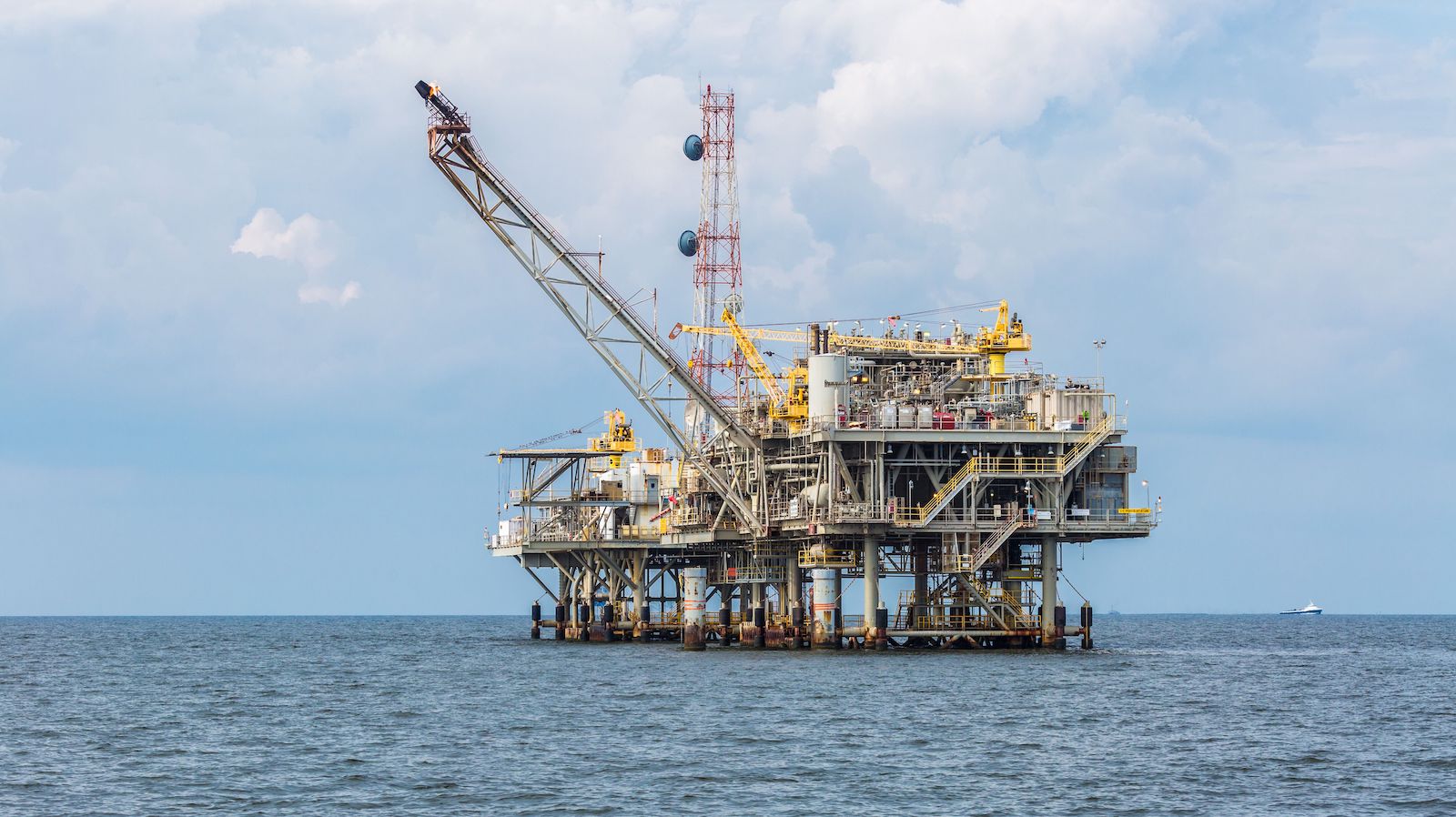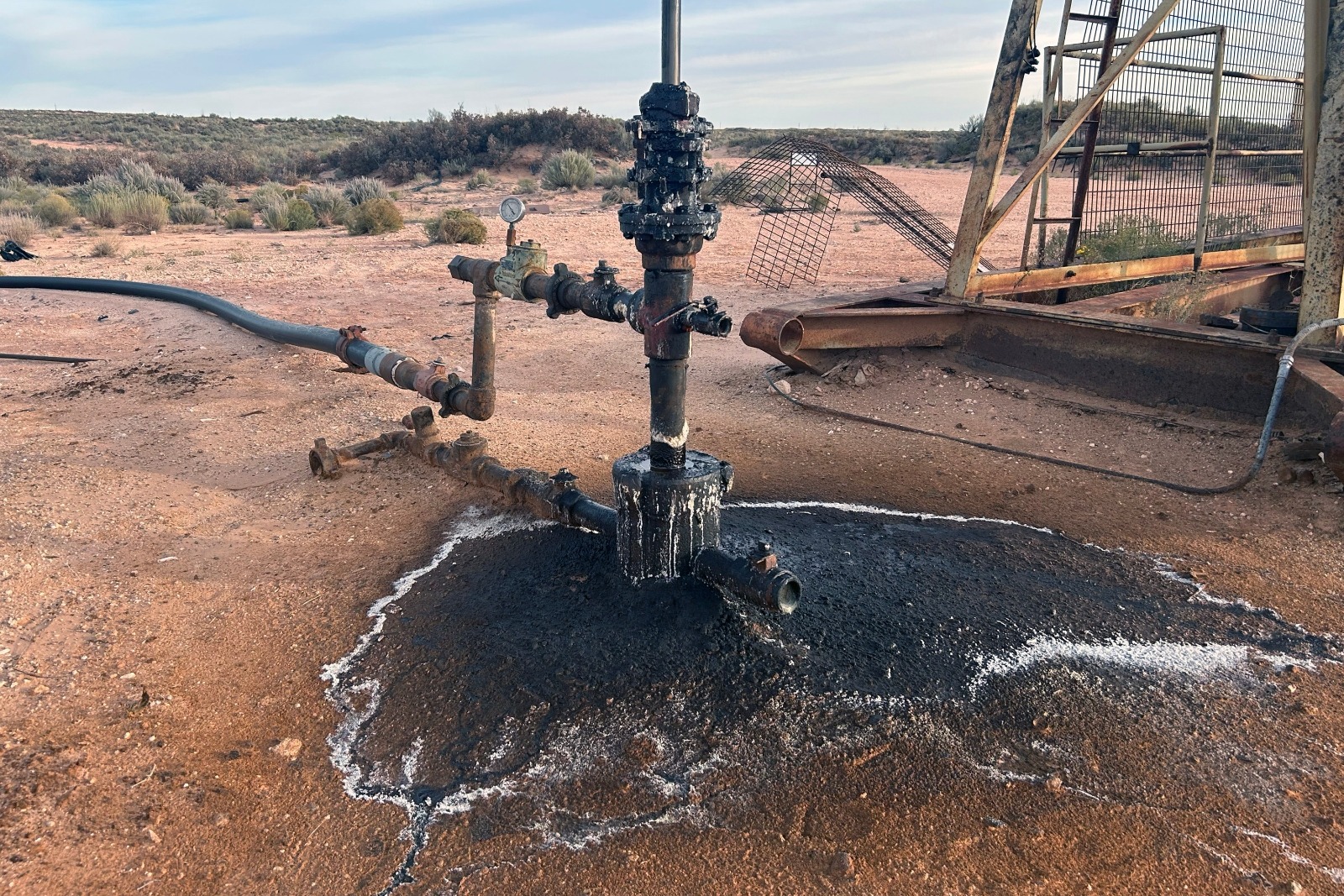This coverage is made possible through a partnership between Grist and Verite News, a nonprofit news organization with a mission to produce in-depth journalism in underserved communities in the New Orleans area.
Environmental groups applauded President Joe Biden’s decision on Monday to enact a sweeping ban on new offshore oil and gas drilling along most of the U.S. coastline. But the ban had one glaring omission: It didn’t include the western Gulf of Mexico, where the country extracts most of its offshore oil.
Aimed at safeguarding the environment and easing the harm caused by climate change, the ban will prohibit future oil and gas leasing in federal waters off the East and West coasts, in parts of the Bering Sea near Alaska and across the eastern portion of the Gulf. The exact boundaries haven’t been announced, but federal regulators generally define the eastern Gulf as the waters extending from the south tip of Florida to the Alabama line. That would leave the waters off Louisiana and Texas open to drilling.
“My decision reflects what coastal communities, businesses, and beachgoers have known for a long time: that drilling off these coasts could cause irreversible damage to places we hold dear and is unnecessary to meet our nation’s energy needs,” Biden said in a statement. “It is not worth the risks.”
Biden and other presidents have protected much smaller areas from oil and gas development, often with expiration dates. Monday’s action appears to be a permanent prohibition, though President-elect Donald Trump has already indicated he aims to “unban it immediately” after he takes office later this month.
“This is an epic ocean victory!” declared Joseph Gordon, a campaign director for Oceana, a nonprofit group focused on protecting the world’s oceans.
But some environmentalists weren’t as enthused.
“That’s great, but is the Central and Western Gulf of Mexico just a sacrifice zone, then?” asked Don Boesch, a marine scientist who served on the National Commission on the BP Deepwater Horizon Oil Spill, which investigated the 2010 disaster. “That’s where all the [Outer Continental Shelf] drilling takes place and greenhouse gas emissions come from.”
The Gulf accounts for 97 percent of all oil and natural gas production in U.S. offshore waters. The vast majority of this production happens near Louisiana and Texas — not the Florida coast, which would be protected by Biden.
The oil and gas industry blasted the ban as misguided and potentially harmful to the economy.
“Though not directly affecting the western Gulf of Mexico, [the ban] is a blatant attack on the oil and natural gas industry — an industry vital to our nation’s energy security and economic strength,” said Tommy Faucheux, president of the Louisiana Mid-Continent Oil and Gas Association, an industry trade group.
But Boesch noted few oil companies are clamoring to drill off the the oil-poor East or West coasts or Florida’s Gulf Coast.
“The ban would not affect oil leasing in the Central and Western Gulf where essentially all drilling takes place or is likely to take place over next 4 years,” Boesch wrote on X.
It’s unclear if or how quickly Trump, a strong supporter of the oil and gas industry, will act on his promise to undo the ban. But some experts say overturning it could be time-consuming, complicated and may require action from Congress. The courts could also weigh in. In 2019, a federal judge ruled that presidents can block drilling but they can’t revoke past bans.
Trump hasn’t always opposed limits on offshore drilling. During his re-election campaign in 2020, Trump extended a drilling moratorium off Florida’s Gulf Coast and expanded it to include the state’s Atlantic Coast and the coasts of Georgia and South Carolina.
“This protects your beautiful gulf and your beautiful ocean, and it will for a long time to come,” Trump said in 2020.
On Monday, Biden evoked the Deepwater Horizon oil spill when announcing the new ban, saying the disaster is a “solemn reminder of the costs and risks of offshore drilling.”
The spill killed 11 workers and released four million barrels of oil into the Gulf off the coast of Louisiana over 87 days. Biden said the disaster “underscores the importance of the legal protections I am putting in place today.”
But the ban does little to protect the Gulf from future spills, said Martha Collins, executive director of the environmental nonprofit Healthy Gulf.
“We are disappointed that President Biden did not take the opportunity to withdraw additional areas in the Gulf of Mexico, particularly the risky deepwater regions and the western Gulf,” she said. “These areas remain vulnerable to catastrophic oil spills.”
Marine animals are still suffering from the Deepwater Horizon disaster nearly 15 years later. Last month, a study led by the Scripps Institution of Oceanography found that some whale species densities in the Gulf have declined by 83 percent since the disaster. Many of the whales found in the Gulf are threatened or endangered.
“I’m frustrated that many places left out [of the ban] are where offshore drilling does the most harm to Gulf communities and endangered species,” said Brady Bradshaw, an oceans campaign manager with the Center for Biological Diversity, a nonprofit group focused on wildlife conservation. “This was a missed opportunity to protect the Western and Central Gulf.”
Source link
Tristan Baurick grist.org


